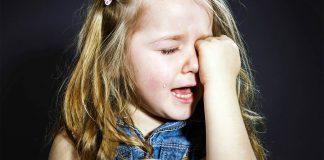Identity crisis: a short guide for parents of teenagers
I have two reasons for writing this article on identity crisis. First, I am the father of four children, three of whom are very different teenagers (14, 17 and 19 years old) and I think I have a vague idea of what it means to deal with teens. Second, in the studies I’ve recently taken up, I was surprised to discover that most...
Becoming a father in the second half of life
While the debate over the “ideal age” for fatherhood may go on endlessly, one fact is clear: the average age at which men in modern society become fathers has steadily increased in recent decades. Behind the polished statistics lie moving personal stories about what it means to embrace fatherhood at an age when youth is little more than a distant memory.
Spoiling is not love
Being a parent means, among other things, engaging in agonising negotiations to keep the supermarket aisles relatively quiet and the shopping trolley from overflowing with sweets. Some are successfully concluded. Others, a real failure. Although we are very adept at recognising a spoiled child on the street, we have a much harder time spotting the signs in our own children. After all, what...
Teenage depression and rebellion: a parent’s worst nightmare
Both specialist research and common experience tell us how complicated it is when children reach adolescence. Dr Bryan Craig helps us to understand the reasons for this and how to turn the crisis into an opportunity for growth.
Does divorce make us happier than continuing in an unhappy marriage?
At the age of 27, for the first time in my life, I worried that time was passing too fast. For the next few years, the speed with which most of my friends were getting married was the next source of concern.
“The insecure adults of the future” | Parent-child dependency
Dependence tends to have negative connotations—we may be addicted to sugar, the internet or gambling. Other times we are dependent on people or relationships, in which case the line between positive and negative is no longer easy to draw.
More than stardust | Grandparents and their spiritual heritage
"Children are not a distraction from more important work. They are the most important work.” (Dr John Trainer)
Sometimes I pass my grandparents' house, which...
Do children ruin marital happiness? How to manage the changes generated by the birth of children
Describing the breakup of her marriage after the birth of her children, journalist Nora Ephron writes that a child is a grenade for the couple’s relationship. After the explosion, when the dust settles, “your marriage is different from what it was. Not better, necessarily; not worse, necessarily; but different.” [1].
Blood is (not always) thicker than water | Sibling estrangement, from causes to solutions
For at least one party, sibling estrangement can be more painful than loss through death, writes Fern Schumer Chapman, who was excluded from her brother's life for four decades.
Daddy issues in the White House
Recently, I became a dad for the first time (that is, if you don’t count my miniature schnauzer, Banjo). Ever since my daughter was born, I’ve had a single thought going through my head: how do I ensure I don’t screw up my child?
Do you know your child’s love language?
In 1997, Dr Gary Chapman released the book "The 5 Love Languages of Children" as a follow-up to his bestseller, "The Five Love Languages."
How children are affected by the loss of a parent
It is difficult to say whether there is a preferable age for facing the death of a parent, but having it happen during childhood and adolescence can have devastating effects on physical and mental wellbeing, which can extend even into adulthood.
Every family has a story | Why you should know yours
“We all feel stronger if we are part of a tapestry. One thread alone is weak, but, woven into something larger, surrounded by other threads, it is more difficult to unravel,” says family therapist Stefan Walters, summarising the benefits of understanding the history of the family we come from.
How harmful is corporal punishment for children?
In an ideal world, everything would be simple: you, as the father or mother, tell your child, the apple of your eye, to do something and, being perfectly obedient and submissive, they do as they’re told. However, we don’t know if such a world would really be ideal. Nevertheless, for many parents, this resembles a paradise to which they would love to escape...
Saying “I do”
Nine years ago, as my then-fiancé and I were deep in the throes of folding paper flowers, painting glass bottles, and designing and making our own wedding stationery, the question popped up fairly regularly: Why don’t we just elope?


























